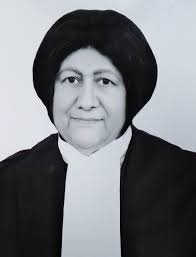The Supreme Court has observed that, the person in whose name the motor vehicle stands registered at the time of the accident would be treated as the owner of the vehicle for the purposes of the Motor Vehicles Act.
The was observed in a plea arising out of an insurance claim made by one Surendra Kumar Bhilawe. The Insurance company had rejected the said claim on the ground that Bhilawe had already sold the said truck to the said Mohammad Iliyas Ansari. Bhilawe filed consumer complaint which was allowed by the District Forum. The appeal filed by the Insurance Company was dismissed by the State Commission. The National Consumer Commission set aside both these appeals on the ground that when a person sells his vehicle and executes a sale letter without anypostponement in passing of the title to the property in the vehicle, the ownership in the vehicle passes to the purchaser at the time of execution of the sale letter.


In an appeal in the apex court, the bench comprising Justices R. Banumathi and Indira Banerjee observed that the National Commission had overlooked the definition of ‘owner’ as given in Section 2(30) of the Motor Vehicle Act, 1988. According to Section 2(30) ‘owner’ has been defined to include“a person in whose name a motor vehicle stands registered and, where such person is a minor, the guardian of such minor, and in relation to a motor vehicle which is the subject of a hire purchase agreement, or an agreement of lease or an agreement of hypothecation, the person in possession of the vehicle under that agreement”.
The courtobserved:
It would also be pertinent to note the difference between the definition of owner in Section 2(30) of the Motor Vehicles Act, 1988 and the definition of owner in Section 2(19) of the Motor Vehicles Act, 1939 which has been repealed and replaced by the Motor Vehicles Act, 1988. Under the old Act ‘owner’ meant the person in possession of a motor vehicle. The definition has undergone a change. Legislature has consciously changed the definition of ‘owner’ to mean the person in whose name the motor vehicle stands.
The bench further noted:
It is difficult to accept that a person who has transferred the ownership of a goods carriage vehicle on receipt of consideration, would not report the transfer or apply for transfer of registration, and thereby continue to incur the risks and liabilities of ownership of the vehicle under the provisions of law including in particular, under the Motor Vehicles Act, 1988 and other criminal/penal laws. It does not also stand to reason why a person who has transferred the ownership of the vehicle should, for over three years, benevolently go on repaying the loan for purchase of the vehicle, take out insurance policies to cover the vehicle or otherwise discharge obligations of ownership. It is equally incredible that an owner of a vehicle who has paid consideration to acquire the vehicle would not insist on transfer of the permit and thereby expose himself to the penal consequence of operating a goods vehicle without a valid permit.
Referring to various decisions like Pushpa @ Leela&Ors. vs. Shakuntala and Naveen Kumar vs. Vijay Kumar, the bench observed:
“The dictum of this Court that the registered owner continues to remain owner and when the vehicle is Insured in the name of the registered owner, the Insurer would remain liable notwithstanding any transfer, would apply equally in the case of claims made by the insured himself in case of an accident. If the insured continues to remain the owner in law in view of the statutory provisions of the Motor Vehicles Act, 1988 and in particular Section 2(30) thereof, the Insurer cannot evade its liability in case of an accident. “
Allowing the appeal, the Court ordered that Bhilawewas the owner of the truck at the time of the accident and hence theinsurer could not evade its liability for the losses suffered by the owner on the ground that the ownership had been transferred to Mohammad Iliyas Ansari.
Case no.: CIVIL APPEAL NO. 2632 OF 2020
Case name: Surendra Kumar Bhilawevs.The New India Assurance Company Limited
Coram: Justices R. Banumathi and Indira Banerjee

